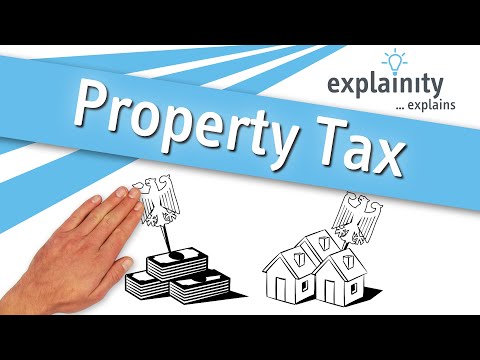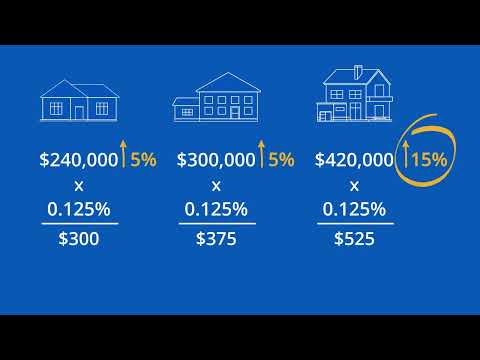Demystifying Property Tax: What Every Homeowner Should Know
When it comes to managing your finances, understanding property tax is as critical as knowing the difference between a high bar Vs low bar squat for your fitness regimen. So, let’s huddle up and get down to the nitty-gritty of property taxes, the unsung hero of local economies that fuel everything from schools to road repairs.

Originally, the concept of property tax sprouted from the legal tradition that the monarch could levy a fee on the land’s use. Fast forward, and well, the king’s no longer in the picture — but the tax remains a foundation stone for municipalities to finance their needs.
What sends property tax rates on a roller coaster ride across the United States? Put simply, it boils down to local communities deciding their financial appetites—be it a nibble or a feast. Some areas have a taste for gold-plated schools, while others maintain a leaner menu of public services.

Insight #1: Unveiling the Property Tax Assessment Process
Ladies and gentlemen, grab your binoculars, and let’s observe the illustrious creature known as the property tax assessment. Here, the assessor’s office takes center stage, wheeling out their formulas and charts to appraise your castle’s worth. They seek the fair market value—what a buyer would willingly pay under no duress, much like a calm and fair auction for collectible memorabilia on game day.
This spectacle occurs periodically—most places aim for annual, but others may roll the dice every few years. And if you feel the taxman’s calculation overshoots the end zone, throw your red flag! That’s right, file an appeal and plead your property tax case to the powers that be.

| Aspect | Detail |
| Definition | A tax levied by local governments on real estate properties. |
| Calculation Basis | Assessed value of the property (land plus buildings) usually determined by a public tax assessor. |
| Rate | Varies by locality; typically expressed as a percentage or as mills (per thousand dollars of assessed value). |
| Frequency | Annually, semi-annually, or quarterly payments are common. |
| Benefits | Funds public services like education, emergency services, transportation, parks, and community development. |
| Exemptions | Often available for homesteads, seniors, veterans, or those with disabilities. Amount and qualifications vary by location. |
| Late Payment Penalties | Additional fees, interest charges, or legal actions may be imposed. |
| Methods of Payment | Online, in-person, by mail, or through escrow as part of a mortgage payment. |
| Appeal Process | Property owners can often challenge assessed values through a formal appeals process if they believe the assessment is excessive. |
| Special Assessments | Extra taxes for specific local benefits (e.g., sidewalk or sewer line installations) that directly affect the value of the property. |
| Tax Lien | A claim against a property for unpaid property taxes which can lead to foreclosure if the debt remains unsettled. |
| Deductibility | Property tax payments may be deductible from federal income taxes under certain circumstances. |
| Fluctuations | Taxes can change yearly based on newly assessed property values and local government budget needs. |
| Impact on Property Value | High property taxes can deter potential buyers, potentially affecting the marketability and value of a home. |
Insight #2: The Intricacies of Property Tax Rates
Now that we’re past the assessment hoopla, let’s talk about the score—the tax rate. In this stadium, the local governments call the plays based on their fiscal game plan. Need a new park? Then they might have to beef up the rate. But hey, it’s not a one-size-fits-all; some communities manage with less, while others have bigger fish to fry.
Think of it this way, residential areas and commercial hubs can feel like they’re in separate leagues when it comes to tax contributions, each fueling the economy in their unique ways, with different impacts on the scoreboard.
Insight #3: Property Tax Exemptions and Relief Programs
So, you’re thinking, “Can I get a timeout on these taxes?” Good news, folks, property tax exemptions and relief programs are the coach’s secret plays. For starters, the homestead exemption shields part of your home sweet home’s value from taxes faster than a cornerback dashing through a gap.
Senior citizens and veterans often have VIP passes to tax breaks, acknowledging their contributions to society. And just when you think it’s fourth and long, various states offer relief programs to keep the roof over your head without breaking the bank. Pull on your jersey, apply for these exemptions, and watch your tax obligations lighten like a home crowd after a winning touchdown.
Insight #4: The Unseen Costs of Evading Property Tax
Let’s get serious for a moment. Evading property tax? Not only does it attract legal penalties that’ll hit you harder than a linebacker, but it also means your community suffers. Without these funds, that hole in the road stays unfixed, and schools might as well nail ‘Help Wanted’ signs on their doors.
Take a look at some towns that dodged the property tax bullet. It’s no Smackdown Results that we desire, with communities grappling with budget shortfalls and a lackluster quality of life. The ripple effect can bring down an entire neighborhood faster than a quarterback sack.
Insight #5: Innovations and Reforms in Property Tax Policy
Change is the name of the game, folks. Tax policy is flexing and adapting, with technologies stepping in to ensure the taxman cometh with fairness and efficiency. Satellite images and AI assist accurate property valuation like a star quarterback scanning the field for an open receiver.
And when it comes to reforms, it could be anything from caps on annual increases, akin to keeping a player’s salary in check, to redistributing the load in a way that whispers financial justice. Who knows, with society’s pulse on the equity and technological advancements, property tax’s playbook is set for an overhaul.
Conclusion: The Ever-Evolving Landscape of Property Tax
In the final huddle let’s recap. Property tax isn’t just a bill—it’s the lifeblood for our kid’s school and the firetruck parked in the local station. It’s the umpire of our community’s ballgame, crucial for public services to run smoothly.
Embracing the understanding of property tax means you’re no longer a spectator; you’re an informed player in this democracy gridiron. Like understanding the nuances of a complex sport or the strategies behind securing the best mortgage terms such as navigating the intricacies of Private Mortgage Insurance, opting for a Qualified Mortgage, or committing to a Rate lock, knowing your property tax game is about playing smart, folks.
As we peer into the crystal ball, envisioning the future of property tax can be as unpredictable as predicting the next big play on the field, or the outcome of the Australian Open 2023 schedule. But rest assured, as long as there are local communities, there will be a property tax – evolving, adapting, yet ever-present.
So, whether you’re spiking the football in the end zone or reviewing your property tax bill, remember the importance of each play and each penny. Alright, team, now that we’ve huddled and dived deep into property tax 101, go out there and tackle your taxes like a pro!

Unpacking Property Tax: Fascinating Tidbits and Nuggets of Knowledge
Let’s dive into the world of property tax with the enthusiasm of a sports fan on game day! Just like watching an Nfl live stream, delving into property taxes can get pretty exciting when you get into the nitty-gritty. So, lace up your learning shoes, and let’s hit the ground running with some quirky facts and insights that will make you the MVP of property tax trivia at your next dinner party.
The Celebrity Connection
You might be wondering what property tax has in common with your favorite celebrities. Well, just like any homeowner, stars have to pay taxes on their lavish estates. For example, golf fans might be intrigued to learn about Rickie Fowler and his adeptness at navigating golf courses, but you bet your bottom dollar that his skills don’t exempt him from property tax. And if you think those celebrity mansions are hitting hole-in-ones in tax exemptions, think again! They’re paying their fair share just like the rest of us.
A Tale of Two Rates
Now, property tax isn’t uniform – it’s as varied as the flavors in a candy shop. Some places have you paying through the nose, while others are a walk in the park. In fact, the rates can differ so dramatically, they remind you of cheering for different teams—it’s all about location, location, location! So, when you’re scoping out your next crib, remember that the property tax rate is one teammate you want playing on your side.
A Historical Plot Twist
Hold onto your hats, because property taxes have been around longer than the oldest “NFL live stream.” We’re talking ancient times! Early civilizations had a knack for funding their empires through land taxation. So next time you’re grumbling about paying those pesky taxes, remember you’re part of a tradition that’s seasoned and tried-and-true.
The Pricey Penalties
Oh, the dangling sword of penalties for late property tax payments! It’s not a scare tactic, my friends—it’s real. Just thinking about it can give you a bad case of the jitters. These penalties can stack up quicker than dirty dishes in a bachelor pad, and before you know it, you could be in deeper than a quarterback on fourth down during a critical game.
The Joy of Deductions
But it’s not all doom and gloom—far from it! Just like finding a golden ticket, there are deductions that can slash what you owe on property taxes. It’s better than scoring front-row tickets to the big game! Knowing what deductions you’re eligible for is like having a playbook that could change the course of the game. So don’t leave that stone unturned; start digging into those potential savings like there’s no tomorrow.
There you have it, folks—a whirlwind tour of property tax that’s both educational and a hoot. Just remember, like any good game, knowing the rules can make all the difference between winning big or going home with empty pockets. Keep these fun facts in your back pocket, and you’ll be sure to dazzle with your property tax savvy!




